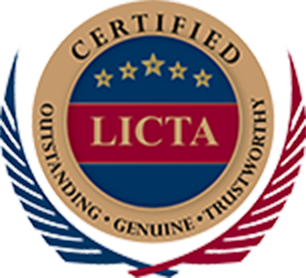E-Invoice Malaysia 2024: Introduction and Latest Updates

-
What is the purpose of implementing e-Invoice in Malaysia?
The Malaysian Government introduced e-Invoices in stages to enhance the efficiency of tax administration management and support the growth of the digital economy. This initiative aligns with the Twelfth Malaysia Plan, focusing on strengthening digital services infrastructure and digitalising tax administration.
-
What is an e-Invoice?
An e-Invoice is a digital representation of a transaction between a supplier and a buyer. It is designed to replace traditional paper or electronic documents, such as invoices, credit notes, and debit notes.
-
How do e-Invoice work?
E-Invoices enable near real-time validation and storage of transaction data. They cater to various types of transactions, including:
- Business-to-Business (B2B)
- Business-to-Consumer(B2C)
- Business-to-Government(B2G)
-
What are the benefits of adopting e-Invoice?
- Unified Invoicing Process
e-Invoices streamline the creation of transaction documents and automate the electronic submission of data to the Inland Revenue Board of Malaysia (IRBM), reducing manual work and human errors. - Simplified Tax Filing
Seamless system integration through e-Invoices facilitates efficient and accurate tax reporting. - Enhanced Business Efficiency
For larger businesses, e-Invoices enable operational streamlining, saving time and costs through automated processes, seamless data integration, and improved invoice management. - Support for MSMEs
Micro, small, and medium-sized enterprises (MSMEs) benefit from a phased implementation, ensuring a gradual and manageable transition to digitalised financial reporting, mitigating potential disruptions.
- Unified Invoicing Process
-
What is the e-Invoices implementation timeline in Malaysia?
The implementation of e-Invoices is divided into three phases based on taxpayers’ annual turnover or revenue:
Tidak
Taxpayers Tarikh Pelaksanaan
Tempoh Relaksasi
1
Taxpayers with an annual turnover or revenue of more than RM100 million 1 August 2024
1 August 2024 to
31 January 20252
Taxpayers with an annual turnover or revenue of more than RM25 million and up to RM100 million 1 January 2025
1 January 2025 to
30 June 20253
All other taxpayers who exceeds RM150,000 1 July 2025
1 July 2025 to
31 December 2025- The annual turnover or revenue for the implementation of e-Invoice will be determined based on the financial year ended 2022.
- MSMEs will be required to implement e-Invoice if their annual turnover or revenue has reached or exceeded the threshold of RM150,000.
- The implementation date will commence from 1 January in the second year following the year in which the total annual turnover or revenue exceeds RM150,000.
- No exemption will be granted after the mandatory implementation year has been determined, and taxpayers are required to continue issuing e-Invoices even if their total annual turnover or revenue does not exceed RM150,000 in subsequent years.
-
Why is e-Invoice adoption important?
The adoption of e-Invoices not only offers a seamless experience for taxpayers but also enhances business efficiency and improves tax compliance. It ensures businesses are aligned with industry standards and fosters a digitalised economy.
-
Is there a way to better understand the mechanism, implementation, reimbursement and disbursement for e-Invoice?
Yes, you can gain further insights into the e-Invoice mechanism and workflow by referring to the official guidelines published by the Inland Revenue Board of Malaysia (IRBM).
-
-
- Download e-Invoice Guideline Version 4.0 (published on 04 October 2024)
- Download e-Invoice Specific Guideline Version 3.1 (published on 04 October 2024)
- View e-Invoice Illustration Guide (Updated on 11 September 2024)
-
You may also consider attending e-Invoice training courses for detailed guidance.
For more information or to register, please visit the contact link below: ANCGroup_E-Invoice Courses Contact.
ANC Group – Your Personal Tax Advisor
Tax consulting is the core service of ANC Group. Our tax professionals provide clients with comprehensive tax support and guidance. We offer tax consulting and compliance services for expatriates, entrepreneurs, and listed and non-listed companies.
Our tax consulting services include business tax, transaction tax, personal tax, and corporate income tax. We don’t just guide you in interpreting and applying complicated taxation rules, but to explore new opportunities and business trends.
ANC Group keep you abreast with Malaysia tax updates and any changes in the local regulations.
We work closely with industry specialists, authorities, and associated professionals within ANC Group to provide the best-in-class integrated tax planning solutions. ANC specialists coordinate the accounting and taxation services to bring your business to success.
[vc_btn title=”Get a Quote” color=”orange” size=”lg” link=”url:%23Footer|title:Footer||” el_id=”buttonGetQuoteTaxService”]









